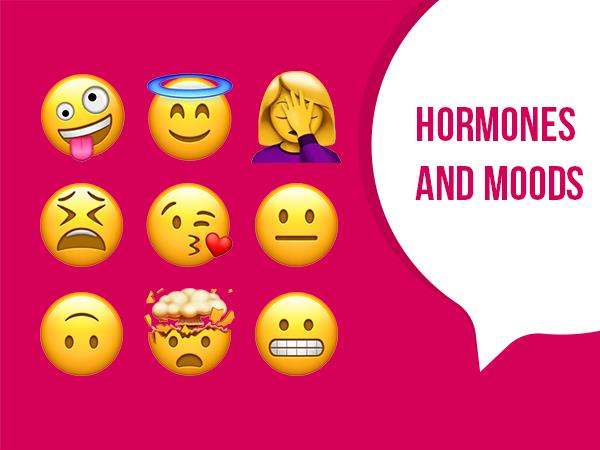Your hormones are little chemical messengers that tell your body to do certain processes. When they are out of balance it can have a knock on effect on all areas of your health; physical, emotional and mental, and your mood is a very common one to be affected.
Treatment is usually counselling, anti-depressants or anti-anxiety medications but it’s important to look at the effects of other physiological changes and whether they are influencing you emotionally and mentally.
Anxiety, depression, low mood and mood swings are all symptoms of imbalances in your thyroid, adrenal and sex hormones. Common hormonal issues that may be affecting your mood and how that can be managed to lift your mood and reduce the symptoms of anxiety and depression, as well as giving you some tips on how you can help to balance out your hormones and boost your mood.
- Thyroid
Your thyroid hormones are released from a gland in your neck (not surprisingly called the thyroid) which not only controls your metabolism and your body temperature but also plays a vital part in your brain chemistry too. Women in their 40’s+ often experience a decline in their thyroid health which can lead to an under active thyroid, where your thyroid isn’t producing hormones in the correct amounts, and that can lead to symptoms such as an inability to cope with stress and overwhelm, and feelings of anxiety, depression and severe mood swings.
- The adrenal glands
The adrenal glands are responsible for controlling levels of stress in your body and in the western world, as mums, wives, colleagues and all the other roles we have to play, they are under more pressure than ever before. When you have chronic levels of stress in your life then it can lead to us not being able to produce adrenaline in the levels we require and release cortisol in levels that are unsustainable. Our adrenal hormones play a big part in controlling our mood and keeping the chemicals in our brain in balance, so to reduce the risk of anxiety and depression we need to ensure they are being produced in the right quantities.
- Insulin Levels
I harp on about blood sugar balance all the time but that’s because it can make such a difference to how you feel. When you eat sugary foods and refined carbohydrates, your insulin kicks in to bring your blood sugar back down into balance. When this is a constant roller coaster throughout the day it affects your energy levels and makes you just plain grumpy, and when this happens over a period of time it can make you feel very low.
- Estrogen / Progesterone Balance
A fall in estrogen levels can cause changes in your mood, which explains why many women going through the menopause experience feelings of depression and anxiety, as well as severe mood swings. Low levels of progesterone also affects our mood and cause us to feel irritable and angry.
Keeping your hormones at their optimal levels will help keep your brain working at its best. Also, supplementing with vitamins, minerals and fish oil helps a lot.







,